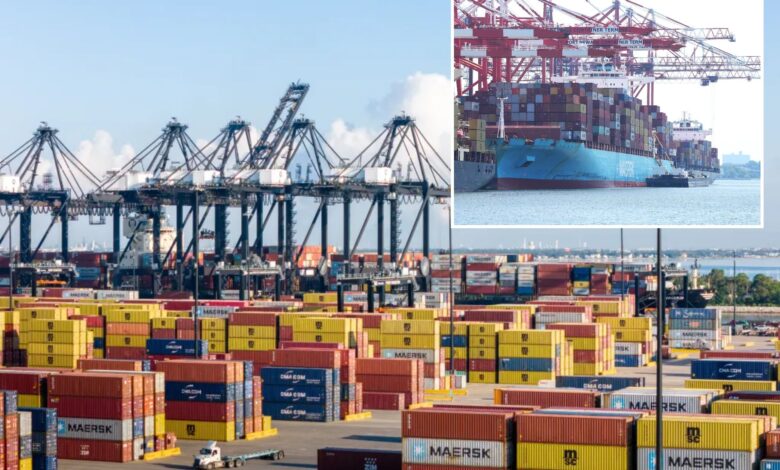Experts warn of empty shelves, rising prices if port workers strike

Dockworkers along the East and Gulf coasts have pledged to strike unless a new contract is reached by October, prompting experts to warn higher prices and empty shelves could await consumers.
In fact, some experts say prices could rise before year’s end, impacting goods during the critical holiday season.
The dire situation arose just as consumers were beginning to experience some relief from inflation.
The International Longshoremen’s Association (ILA) is negotiating on behalf of 45,000 dockworkers at three dozen U.S. ports from Maine to Texas that collectively handle about half of the country’s seaborne imports.
It warned its members are prepared to stop work if they don’t have a new contract by the Oct. 1 deadline.
The Retail Industry Leaders Association (RILA) said in a statement that “retailers view this strike and its imminent disruption as a self-inflicted wound to the U.S. economy.”
JPMorgan estimated that for each day the ports are shut down, it will take roughly six days to clear the backlog.
Analysts pegged the economic impact of a strike to about $5 billion per day, according to a research note published earlier this month.
Even though retailers have made contingency plans to minimize its effects,”the longer a work stoppage goes on, the harder it will be to do so,” the RILA said.
Several experts have told FOX Business that this type of disruption in shipping and supply chains often leads to product shortages, which drives up prices.
“If these strikes cause a rise in prices, it could push inflation higher, potentially delaying the Federal Reserve from cutting rates further,” Cody Moore, partner and wealth adviser of wealth management firm Wealth Enhancement & Prevention, told FOX Business. He added that “this delay could ultimately impact consumer costs for things like home mortgages, car loans and credit cards.”
SalSon Logistics CEO Jason Fisk told FOX Business that shoppers “should brace for a rise in prices for goods by the first quarter of 2025, or possibly even sooner.”
“Importers are actively implementing strategies to manage these risks, yet these solutions often come with their own high expenses, inevitably impacting consumer prices,” Fisk said.
Discretionary products, particularly luxury items and recreational goods, are expected to be most affected due to their high price elasticity, according to Fisk.
While the strike’s full impact remains unclear, Fisk says he is expecting “significant repercussions” such as “retail stockouts and plant slowdowns, especially as we approach the busy holiday season.”
Retail stockouts is an industry term for out-of-stock events, which is when a product is unavailable for purchase.




